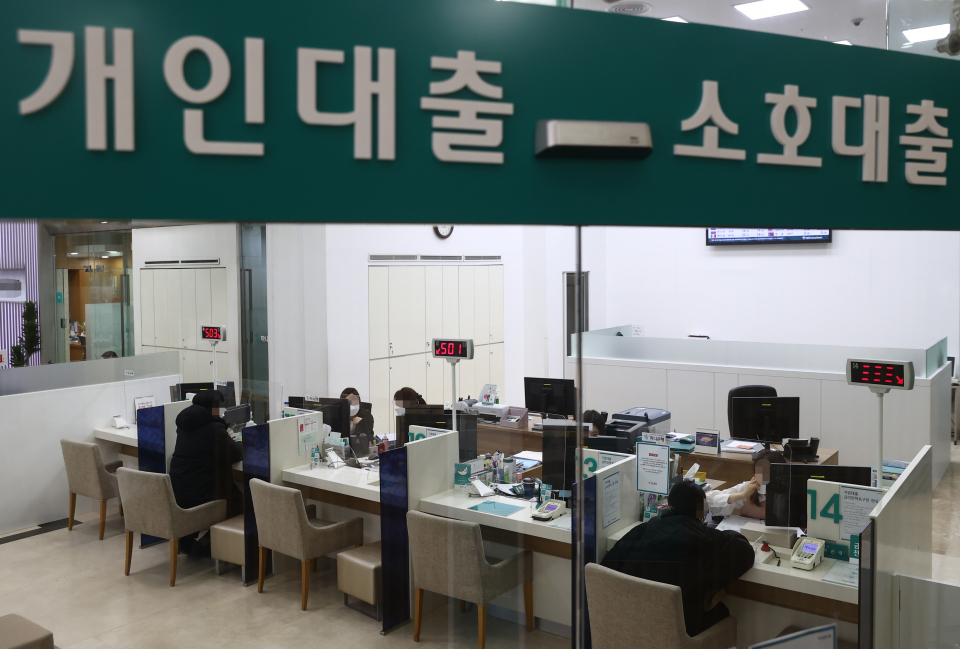
Customers consult with bank employees about loan products at a bank in Seoul on Jan. 5. (Yonhap)
Household debt in South Korea surged to nearly 100 percent of the nation’s gross domestic product, raising concerns that the central bank’s rate hikes may be placing a heavy burden on the household sector, a report showed Monday.
The proportion of Korea’s household debt to its GDP -- the market value of all final goods and services produced in an economy during a certain period -- came to 98.6 percent at the end of June last year, according to the report from the Korea Institute of Public Finance.
The level of household debt in Asia’s fourth-largest economy outstripped the global average of 63.7 percent and the average in advanced countries of 75.3 percent, it said.
In addition, Korea’s household debt figures have increased at a much faster pace than those of its foreign counterparts.
The latest figure represented a gain of 27.6 percentage points from 2008. In contrast, between 2008 and 2020 the global average gained 3.7 percentage points and advanced nations on average logged a 0.9 percentage point decrease, data showed.
In addition, Korean households were more reliant on short-term loans compared with households in other major economies. Of the country’s total household debt, short-term debt accounted for 22.8 percent -- much higher than the corresponding figures of 2.3 percent for France, 3.2 percent for Germany, 4.5 percent for Spain and 11.9 percent for Britain. The United States was an exception, with a short-term debt ratio of 31.6 percent.
Korea’s household debt is on the rise as people increasingly borrow money from financial institutions either to purchase apartments or invest in stocks amid the prolonged low-rate environment.
The Bank of Korea slashed the benchmark interest rate to an all-time low of 0.5 percent in May last year after an emergency rate reduction to 0.75 percent the previous March. This was done to inject liquidity into banks, businesses and households affected by the COVID-19 pandemic.
Due to ample liquidity, the total value of all financial loans plus credit card-based payment services extended to households reached an all-time high of 1,726 trillion won ($1.53 trillion) as of December, the BOK data showed.
The research institute also noted that a sharp rise in the benchmark interest rate amid fast-growing debt could trigger household indebtedness, which could take a toll on the real economy.
Meanwhile, BOK Gov. Lee Ju-yeol earlier said “it is premature to change the current monetary easing policy due to lingering economic uncertainty amid the protracted COVID-19 pandemic.”
By Choi Jae-hee (
cjh@heraldcorp.com)






